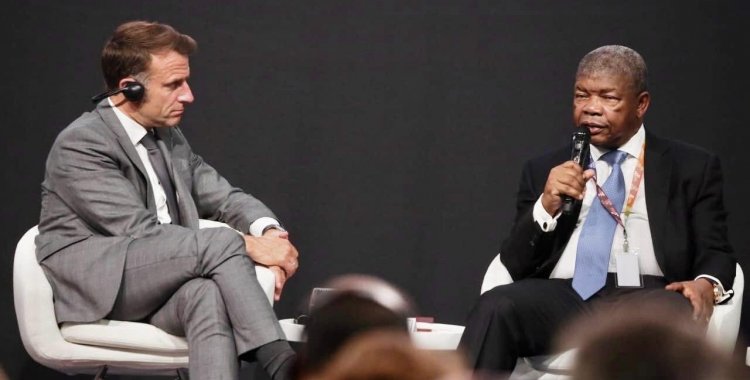The consideration was made during the panel "A Paradigm Shift towards Country-Led Solutions to the Challenges of Our Time", which was an initiative of the presidents of France and Kenya, Emmanuel Macron and William Ruto respectively, and which took place in the Spanish city of Seville, on the sidelines of the 4th UN Conference on Financing for Development.
The also acting President of the African Union, highlighted that the "merit of this Seville conference is to seek new forms of investment for the economic and social development of countries".
"For there to be development, we need to take care of a group of issues: capital, investment, technology, infrastructure. But, first and foremost, we need to take the human person into consideration. None of this can happen if we do not take care of the human person," he said, adding: "And for the human person to be able to contribute to the development of their respective countries, they need to be well, eat well and, most importantly, be healthy. They need to be in good health, to have guaranteed medical and drug assistance, so that they can develop their capabilities and, in this way, contribute to the economic and social development of their respective countries."
In his speech, which VerAngola had access to, the head of state highlighted the various challenges that Africa faces: "Africa is a continent with around 1.5 billion inhabitants. It is a continent that faces a range of challenges, starting with wars, armed conflicts, ethnic conflicts and religious conflicts, all of which have a negative impact on the development of our continent. That is why we are still facing situations of hunger, poverty and many neglected diseases, but also endemic diseases and pandemics such as measles, smallpox, Covid, which has been overcome but persists to a certain extent, cholera, and other situations that are a concern for the public health of our citizens".
He therefore defended the need for "sovereign investment" in health. "For this reason, we are talking today, here in this panel, about the need for sovereign investment in health, not only on the African continent, but in the world in general", he said.
"Sovereign investment in health is important and we are trying to do our part, seeking solutions to invest in health infrastructure – in other words, in hospital units – in training health professionals, and in factories to produce medicines and vaccines to serve our populations", he added.
According to the President, "all African countries, some more than others, are making a great effort" to avoid "a repeat of what happened during the Covid-19 outbreak a few years ago, when the continent suddenly found itself unable to produce the vaccines that could deal with the Covid-19 pandemic".
"We have become 100 percent dependent on other producers, from other continents, and at their whim. In some cases, even though we have the financial resources to pay for these vaccines, we have encountered difficulties in supplying them," he recalled, adding that they want to "prevent this from happening again."
"Angola, in particular, has sought to do its part and we believe that all other countries have sought to do the same," said João Lourenço, adding that, in seven years, the country has been "making a large public investment in the health sector."
"We have built countless hospital units, going from 2612 hospital units to 5958 hospital units in that seven-year period. We have increased the health sector workforce by 46 percent, including doctors, nurses and other health professionals, and we have an ambitious professional training plan for health, which foresees the training of around 38,000 health professionals by 2028," he pointed out.
"This has been done, both with the treasury's own resources and with external financing from international financial institutions, but also from commercial banks. Therefore, financing that is expensive, with repayment conditions that are painful for any country, but especially for our countries that are already in debt", he stated, considering that they understand that "without health there is no development".
For this reason, he continued, "we are committed to continuing with this ambitious program of ours to substantially improve the public health panorama in our country".
"Today, as President of the African Union, I also seek to give the greatest possible support to the institution of the Continental Organization, which is the Africa CDC (...)", he revealed, adding that they seek to "give the greatest possible support to this institution, so that it can lead the process of setting up factories to produce medicines but, above all, vaccines, in a large number of countries" on the continent.
"Angola contributed around five million dollars to this institution this year, as we consider it to be a useful institution that will help the continent to tackle these neglected diseases, endemic diseases and pandemics that I mentioned at the beginning of my speech", he stated.
João Lourenço concluded with an appeal: "(...) We encourage, above all, donors, contributors to this great organization of ours — the United Nations — to release more and more resources, so that the disease in the world can be controlled. It will never end, but it must be controlled and allow the people of the world to be able, in good health, to make a greater contribution to the sustainable economic development that we all want".
After his work agenda in Spain, the President of the Republic is already in the country.
"Upon landing in Luanda, the President of the Republic received welcome greetings from the Vice-President of the Republic, Esperança da Costa, and other members of the central administration of the State", said the Presidency of the Republic, in a brief note to which VerAngola had access.







